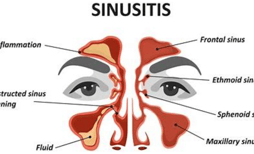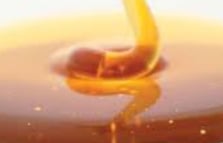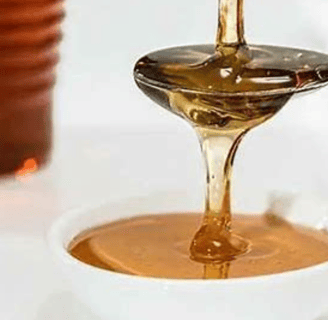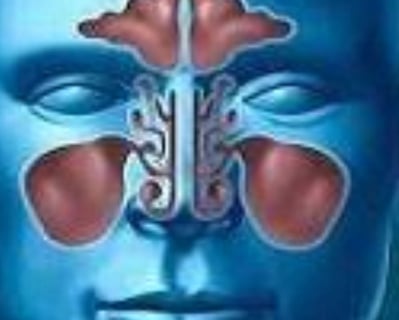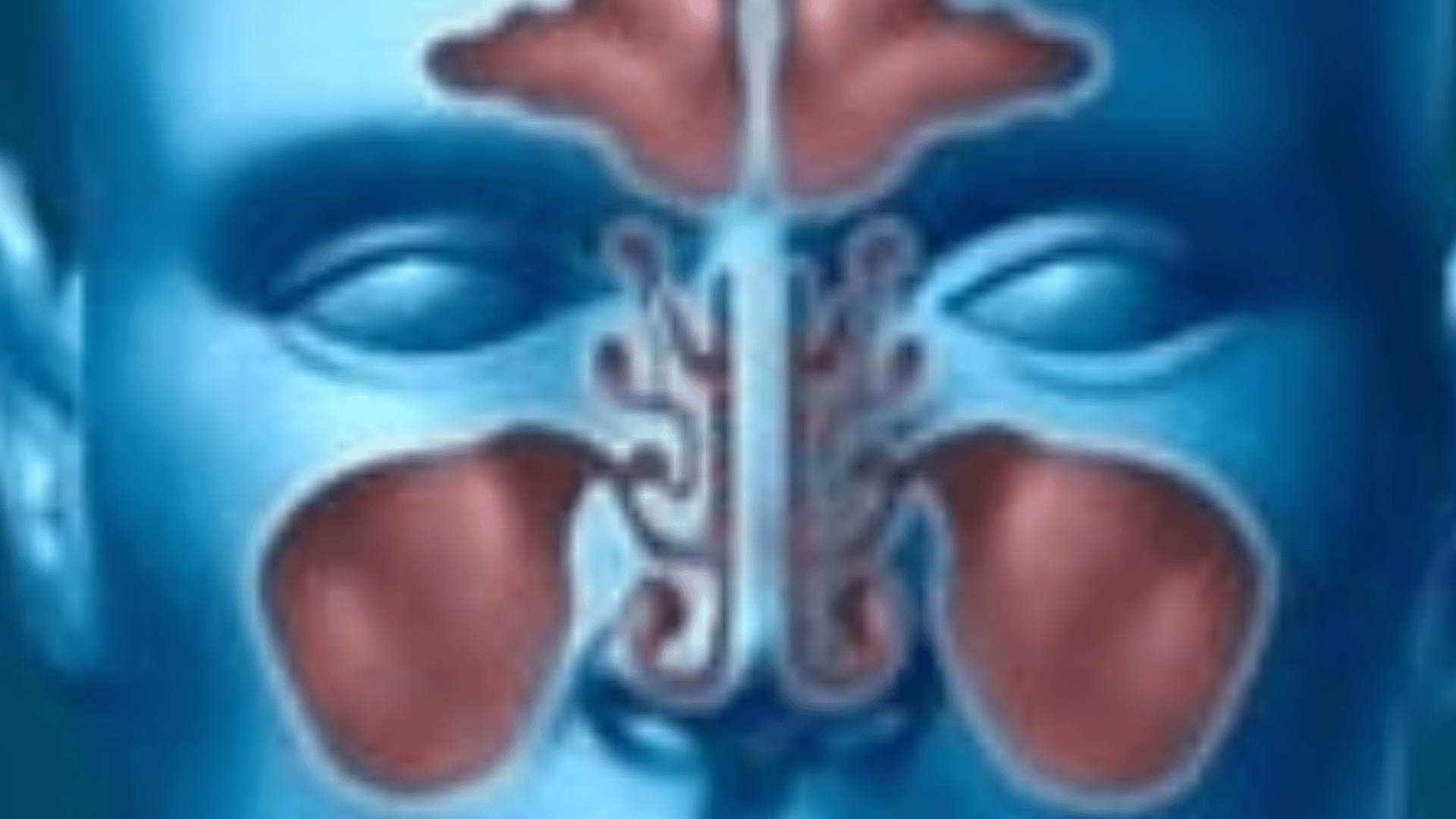
Sinusitis Treatments : Fasting & Honey
Discover effective treatments fo r sinusitis, including the benefits of fasting, intermittent medication, and the natural healing properties of honey.
EAR NOSE AND THROATS OTOLARYNGOLOGY
Dr Hassan Al Warraqi


Effective Sinusitis Treatments : Fasting & Honey
Sinusitis, also known as a sinus infection, is an inflammation of the sinuses.
The sinuses are air-filled cavities in the skull that are located around the eyes, nose, and cheeks.
Sinusitis can be caused by a bacterial or viral infection, or by allergies.
Symptoms of sinusitis can include:
Thick, yellow or green mucus from the nose
Stuffy or runny nose
Pain, tenderness, and swelling around the eyes, cheeks, nose, or forehead
Postnasal drip (mucus dripping down the back of the throat)
Reduced sense of smell and taste
Fatigue
Fever
Treatment for sinusitis will depend on the underlying cause.
For most cases of acute sinusitis, over-the-counter medications such as decongestants, pain relievers, and fever reducers can be helpful.
Saline nasal sprays and irrigation can also help to relieve congestion and thin mucus.
If symptoms are severe or do not improve with over-the-counter medications, antibiotics may be prescribed.
Chronic sinusitis is defined as sinusitis that lasts for 12 weeks or longer, even with treatment.
Chronic sinusitis can be more difficult to treat and may require a combination of medications, surgery, or other therapies.
Here are some tips to help
Wash your hands frequently with soap and water.
Avoid close contact with people who are sick.
Get a flu shot every year.
Manage allergies and asthma.
Drink plenty of fluids to stay hydrated.
Use a humidifier to add moisture to the air in your home, especially at night.
Avoid smoking and secondhand smoke.
There are a number of ways to treat sinusitis, depending on the underlying cause.
For acute sinusitis, which is most often caused by a virus, over-the-counter medications such as decongestants, pain relievers, and fever reducers can be helpful.
Saline nasal sprays and irrigation can also help to relieve congestion and thin mucus.
Most people with acute sinusitis recover within 7-10 days without antibiotics.
If symptoms are severe or do not improve with over-the-counter medications, antibiotics may be prescribed.
Antibiotics are most effective against bacterial infections, but they are not necessary for viral infections.
Antibiotics should only be taken as prescribed by a doctor.
Chronic sinusitis is defined as sinusitis that lasts for 12 weeks or longer, even with treatment. Chronic sinusitis can be more difficult to treat and may require a combination of medications, surgery, or other therapies.
Medications that may be used to treat chronic sinusitis include:
Nasal corticosteroids: These sprays help to reduce inflammation in the sinuses.
Antihistamines: These medications can help to relieve allergy symptoms, such as sneezing and runny nose.
Antibiotics: Antibiotics may be prescribed if a bacterial infection is present.
Surgery may be considered for people with chronic sinusitis who do not respond to other treatments.
Surgery can help to open up blocked sinuses and improve drainage.
Other therapies that may be helpful for chronic sinusitis include:
Saline nasal irrigation: This involves rinsing the sinuses with a salt water solution.
Allergy shots: These shots can help to reduce the body's sensitivity to allergens.
Balloon sinuplasty: This is a minimally invasive procedure that uses a balloon to open up blocked sinuses.
honey treat sinusitis
Honey has been used as a natural remedy for sinusitis for centuries. It has antibacterial, antiviral, and anti-inflammatory properties, which can help to relieve symptoms and speed recovery.
There are a number of ways to use honey to treat sinusitis:
Mix 1-2 tablespoons of honey with a cup of warm water and drink it. This can help to loosen mucus and soothe a sore throat.
Add a spoonful of honey to your favorite tea. This is a delicious and soothing way to get your honey fix.
Apply honey directly to your sinuses. This can be done by dabbing a small amount of honey on your finger and rubbing it under your nose and on your forehead.
Make a honey sinus rinse. Mix 1 teaspoon of honey with 1 cup of warm saline water. Use a nasal syringe or Neti pot to flush your sinuses with the honey solution.
Honey is generally safe for most people to use, but it is important to talk to your doctor before using it if you have any underlying health conditions, such as diabetes or allergies.
It is also important to note that there is limited scientific evidence to support the use of honey for the treatment of sinusitis. However, many people find that honey helps to relieve their symptoms.
Over-the-counter medications or antibiotics may be necessary, depending on the underlying cause of your sinusitis.
fasting treat sinusitis
There is some evidence that fasting may be helpful in treating sinusitis.
Fasting can help to reduce inflammation and improve the immune system function, both of which are important for fighting off infection.
found that intermittent fasting was effective in reducing the severity of sinusitis symptoms in rats. The study also found that intermittent fasting helped to improve the function of the immune system.
that fasting for 24 hours helped to reduce inflammation and improve the immune system function in humans.
Over-the-counter medications or antibiotics may be necessary, depending on the underlying cause of your sinusitis.
Here are some tips for fasting safely:
Start with a short fast, such as 12-16 hours.
Gradually increase the length of your fasts over time.
Drink plenty of water and other unsweetened beverages during your fast.
Eat a healthy diet when you are not fasting.
Break your fast with a light meal.
Listen to your body and stop fasting if you experience any negative side effects.
keywords
Sinusitis, Fasting, intermittent ,honey, medication, surgery,Fasting can help to reduce inflammation, and improve the immune system function, both of which are important for fighting ,off infection,relieve symptoms and speed recovery,nasal antihistamine , antibiotic and cortisole, air-filled cavities ,in the skull, that are located around ,the eyes, nose, and cheeks,
Treating Sinusitis with Honey
A detailed analysis of sinusitis (sinus infection) treatment, focusing on the role of honey, home remedies, and conventional medical options, optimized for SEO.
Target Audience: Individuals interested in natural and medical treatments for sinusitis, seeking effective and safe solutions to relieve symptoms.
SEO Keywords: sinusitis treatment, honey for sinus infection, home remedies for sinusitis, sinusitis symptoms, nasal irrigation, Manuka honey, natural sinus relief.
Executive Summary
This guide offers a thorough exploration of sinusitis, its causes, symptoms, and diverse treatment options, spotlighting honey as a promising natural remedy.
It covers home treatments like nasal irrigation, steam inhalation, and herbs, alongside medical interventions such as antibiotics and surgery. The potential anti-inflammatory effects of fasting are also examined.
The guide emphasizes the importance of consulting a doctor to identify the precise cause and select appropriate treatment, particularly for chronic or severe cases, while clarifying the safety and precautions of using honey.
Key Insights and Topics
1. Understanding Sinusitis
Definition: Sinusitis is inflammation or swelling of the sinus lining (air-filled cavities behind the forehead and cheeks), obstructing mucus drainage and causing pressure and congestion.
Source: “Sinusitis hinders breathing and causes runny nose and fever”
Types:
Acute (less than 4 weeks).
Chronic (over 12 weeks).
Recurrent (multiple episodes annually).
Causes:
Infections: Bacterial, viral, or fungal.
Allergies: Pollen, dust, pet dander.
Environmental factors: Weather changes, dry air, pollution.
Structural issues: Deviated septum, nasal polyps.
Medical conditions: Colds, asthma, weakened immunity.
Source: “Causes include allergies, colds, asthma, and infections”
Symptoms:
Nasal congestion and discharge (thick or colored mucus).
Facial pain or pressure (forehead, cheeks, eyes).
Headaches, worsened by bending.
Loss or reduced sense of smell.
Cough, sore throat, mild fever.
Source: “Symptoms include headaches, nasal congestion, and facial pressure”
Potential Complications: If untreated, sinusitis may lead to ear infections, vision problems, or meningitis (rare).
2. Home and Natural Remedies for Sinusitis
Home remedies provide effective, safe alternatives for symptom relief, especially in mild or acute cases:
Nasal Irrigation:
Description: Rinsing the nose with saline using a neti pot or spray to remove mucus and irritants.
Benefits: Reduces congestion, relieves pressure, and prevents bacterial buildup.
Precautions: Use distilled or sterilized water to avoid infections (e.g., rare amoeba risks).
Source: “Saline nasal irrigation relieves chronic sinusitis symptoms”
Sinus Hydration:
Methods:
Use a humidifier in the bedroom (maintain 40-50% humidity).
Apply daily natural saline sprays.
Take steam showers or inhale hot water vapor.
Benefits: Moisturizes nasal membranes, thins mucus, and eases breathing.
Source: “Hydrating sinuses reduces pressure and swelling”
Natural Oils:
Examples: Lavender oil (calming), eucalyptus oil (decongestant), lemon juice (refreshing).
Usage: Massage neck or face with diluted oil blends or cautiously inhale their vapors.
Source: “Oils like lavender and eucalyptus treat sinuses”
Apple Cider Vinegar:
Benefits: Antimicrobial, aids in breaking down mucus.
Usage: Mix two tablespoons in warm water for gargling or drinking twice daily.
Source: “Apple cider vinegar is effective for sinusitis”
Warm Tea:
Recipes:
Blend black pepper, honey, lemon, and boiled water (1-2 times daily).
Grated ginger (one teaspoon in boiled water).
Benefits: Reduces inflammation, opens airways, and boosts immunity.
Source: “Ginger and honey tea treats sinuses”
Radish:
Benefits: Antimicrobial, fights sinus-causing bacteria.
Usage: Consume fresh or as diluted juice.
Source: “Radish combats sinus infection bacteria”
Compresses:
Method: Apply warm compresses to the face for 5 minutes, followed by cold compresses for 1 minute, repeating as needed.
Benefits: Alleviates pressure, reduces inflammation, and improves circulation.
Source: “Warm and cold compresses reduce sinus inflammation”
Fasting:
Potential Benefits: May reduce overall inflammation, enhance immunity, and improve bodily functions.
Evidence: A study indicated fasting increases arachidonic acid, an anti-inflammatory compound.
Precautions: Consult a doctor before fasting, especially for diabetics or those with chronic conditions.
Source: “Fasting elevates arachidonic acid to curb inflammation”
3. The Role of Honey in Treating Sinusitis
Honey emerges as a potent natural remedy due to its unique properties:
Properties:
Antibacterial and antifungal: Combats sinus infections.
Anti-inflammatory: Reduces swelling and nasal pressure.
Moisturizing and soothing: Relieves throat irritation, cough, and breathing difficulties.
Immunity booster: Supports the body in fighting infections.
Source: “Honey is antibacterial, reduces inflammation, and strengthens immunity”
Usage Methods:
Take one teaspoon daily with warm water or herbal tea.
Mix with lemon juice (one teaspoon each, twice daily).
Blend with apple cider vinegar or crushed garlic to enhance antimicrobial effects.
Inhale steam from water mixed with a few drops of honey (cautiously to avoid burns).
Source: “Honey with lemon is effective for sinuses twice daily”
Manuka Honey:
Distinction: Contains methylglyoxal, a powerful antimicrobial compound.
Evidence: A study showed nasal rinsing with Manuka honey is more effective than saline in preventing chronic sinusitis exacerbations without antibiotics.
Usage: Consume directly or use in diluted nasal rinses.
Source: “Manuka honey prevents sinusitis worsening”
Treating Nasal Allergies:
Benefits: Local honey contains trace pollen, potentially reducing sinus allergies gradually.
Cautions: Effects are slow and may not suit those with severe pollen allergies.
Source: “Honey reduces nasal allergies over time”
Precautions:
Prohibited for infants under one year due to botulism risk.
Allergy testing is necessary, as honey may trigger reactions in some individuals.
Avoid overuse in diabetics due to sugar content.
4. Conventional Medical Treatments for Sinusitis
For cases unresponsive to home remedies, medical options are utilized:
Antibiotics:
Usage: Prescribed for acute or chronic bacterial infections (e.g., amoxicillin, Augmentin).
Duration: Typically 10-14 days, depending on infection severity.
Cautions: Ineffective for viral infections; overuse may cause bacterial resistance.
Source: “Antibiotics are used for bacterial infections”
Surgery:
Types:
Balloon sinuplasty: Minimally invasive to open blocked sinuses.
Functional endoscopic sinus surgery: Removes obstructions or corrects septal deviations.
Indications: Chronic sinusitis unresponsive to other treatments.
Benefits: Enhances drainage and reduces long-term symptoms.
Source: “Surgery opens blocked sinuses”
Other Treatments:
Corticosteroid nasal sprays (e.g., fluticasone) to reduce inflammation.
Allergy shots to decrease immune reactions.
Antihistamines for seasonal allergies.
Source: “Saline sprays and allergy shots support treatment”
5. Types of Honey and General Benefits
Types: Vary by nectar source and processing, influencing flavor and properties:
Manuka honey: Potent antimicrobial.
Acacia honey: Light, allergy-friendly.
Clover honey: Sweet, versatile.
Buckwheat honey: Strong antioxidant.
Citrus, rosemary, sage honeys: Soothing properties.
Source: “Honey types differ in flavor and benefits”
General Benefits:
Nutrient source: Contains vitamins and minerals (in small amounts).
Wound healing: Promotes burn and wound recovery with antiseptic properties.
Antioxidant: Protects against chronic diseases.
Sugar alternative: Healthier when used moderately, aiding weight control.
Cough relief: Effective for children over one year.
Source: “Honey boosts immunity and heals wounds”
Safety:
Safe for adults and children over one year.
Prohibited for infants under one due to botulism risk.
Allergies: Rare but possible to pollen or honey components.
6. Other Herbs for Sinusitis Treatment
Herbs serve as complementary remedies to alleviate symptoms:
Ginger: Anti-inflammatory and antimicrobial, improves breathing.
Cayenne Pepper: Clears nasal passages, reduces congestion.
Onion: Antihistamine, reduces inflammation.
Garlic: Antibacterial, used cautiously to avoid irritation.
Lemon Balm: Antiviral, calms symptoms.
Goldenseal: Enhances mucus drainage, fights infection.
Turmeric: Potent anti-inflammatory, supports recovery.
Echinacea: Immune stimulant, shortens infection duration.
Apple Cider Vinegar: Thins mucus, eases congestion.
Source: “Herbs like ginger and turmeric relieve sinuses”
Note: Consult a doctor before using herbs, especially with medications.
Conclusions and Recommendations
Treatment Diversity: Sinusitis management includes home remedies (honey, nasal irrigation) and medical options (antibiotics, surgery), enabling tailored treatment based on the condition.
Honey’s Role: Promising due to its antimicrobial and anti-inflammatory properties, particularly Manuka honey, with seamless integration into daily routines.
Home Remedy Efficacy: Nasal irrigation, steam, and herbs offer rapid symptom relief but may not always address underlying causes.
Diagnosis Importance: Consulting a doctor is essential to determine whether the infection is bacterial, viral, or allergy-related, especially in chronic cases.
Cautions with Honey and Fasting:
Honey is unsafe for infants and requires caution in diabetics.
Fasting may reduce inflammation but necessitates medical supervision.
Practical Steps:
Begin with home remedies for mild cases (honey, steam, nasal rinses).
Consult an ENT specialist if symptoms persist beyond 10 days or worsen.
Maintain a clean environment (humidifiers, air purifiers) to prevent relapses.
SEO Notes: The content is enriched with keywords like “honey for sinusitis,” “natural remedies for sinus infection,” and “sinusitis symptoms” to boost search engine visibility, providing detailed, reader-centric answers to meet user needs comprehensively.
Frequently Asked Questions About Sinusitis, Honey, and Fasting FAQS
A detailed exploration of common questions about sinusitis treatment, focusing on honey, fasting, and other remedies, optimized for SEO with in-depth insights.
Target Audience: Individuals seeking natural and medical solutions for sinusitis, aiming to understand the role of honey, fasting, and herbs in symptom relief.
SEO Keywords: sinusitis treatment, honey for sinus infection, fasting for sinusitis, home remedies for sinusitis, sinusitis symptoms, nasal allergies, Manuka honey, natural sinus relief.
1. What Are the Most Effective Home Remedies for Treating Sinusitis?
Home remedies offer practical, safe ways to alleviate sinusitis symptoms, particularly for mild or acute cases:
Nasal Irrigation:
Description: Rinsing the nasal passages with a saline solution using a neti pot or spray to clear mucus, allergens, and irritants.
Benefits: Reduces congestion, eases sinus pressure, and prevents bacterial buildup.
Precautions: Use sterile or distilled water
to avoid rare infections (e.g., amoeba-related risks). Always clean the neti pot thoroughly after use.
Source: “Saline nasal irrigation relieves chronic sinusitis symptoms”
Warm and Cold Compresses:
Method: Alternate warm compresses (5 minutes) and cold compresses (1 minute) on the nose and sinus areas (forehead, cheeks).
Benefits: Soothes facial pain, reduces inflammation, and improves blood flow to alleviate pressure.
Source: “Compresses reduce sinus pain and pressure”
Steam Inhalation:
Techniques: Inhale steam from a bowl of hot water (cover head with a towel) or during a hot shower.
Benefits: Loosens thick mucus, hydrates nasal passages, and promotes drainage. Adding essential oils like eucalyptus may enhance effects (use cautiously).
Source: “Steam inhalation dissolves mucus in sinusitis”
Hydration:
Recommendation: Drink 2-3 liters of water daily, supplemented with herbal teas or clear broths.
Benefits: Keeps mucus thin, supports sinus drainage, and prevents dehydration, which can worsen symptoms.
Source: “Hydration facilitates mucus clearance”
Humidifiers:
Usage: Place a cool-mist humidifier in the bedroom, maintaining humidity at 40-50%.
Benefits: Prevents dry nasal passages, reduces irritation, and supports comfortable breathing, especially at night.
Precautions: Clean humidifiers daily to avoid mold or bacteria growth.
Source: “Humidifiers prevent sinus irritation”
Additional Tips:
Elevate the head during sleep to promote drainage.
Avoid irritants like smoke, strong perfumes, or dusty environments.
Incorporate anti-inflammatory foods (e.g., berries, leafy greens) to support recovery.
2. How Can Honey Be Used to Help Treat Sinusitis?
Honey is a versatile natural remedy with properties that make it valuable for sinusitis relief:
Properties:
Antibacterial and antiviral: Fights pathogens causing sinus infections.
Anti-inflammatory: Reduces sinus swelling and pressure.
Soothing: Eases sore throat, cough, and nasal irritation.
Source: “Honey’s antibacterial and anti-inflammatory properties aid sinusitis”
Usage Methods:
Direct Consumption: Take 1-2 teaspoons of raw honey daily to boost immunity and reduce inflammation.
Warm Drink: Mix 1 teaspoon of honey with warm water or herbal tea (e.g., chamomile, ginger) to soothe the throat and sinuses, 1-2 times daily.
Enhanced Blends: Combine honey with:
Lemon juice (1 teaspoon each) to enhance antimicrobial effects and clear mucus.
Apple cider vinegar (1 tablespoon in warm water) to thin mucus and fight infection.
Crushed garlic (small amount) for added antibacterial power (use sparingly to avoid stomach upset).
Nasal Application (Experimental): Some anecdotal reports suggest diluting honey with saline for nasal rinses, but this requires medical supervision to ensure safety.
Source: “Honey mixed with lemon is effective for sinus relief”
Manuka Honey:
Unique Benefit: Contains methylglyoxal, a potent antimicrobial compound, making it especially effective against resistant bacteria.
Evidence: A study found Manuka honey nasal rinses outperformed saline in preventing chronic sinusitis flare-ups without antibiotics.
Usage: Consume 1 teaspoon daily or use in diluted form for nasal irrigation (consult a doctor first).
Source: “Manuka honey excels in sinusitis treatment”
Precautions:
Avoid in infants under one year due to botulism risk.
Test for allergies by trying a small amount first, as some may react to pollen in honey.
Use sparingly in diabetics due to natural sugars; monitor blood glucose levels.
Effectiveness: Preliminary studies suggest honey reduces cough severity and improves breathing in sinusitis patients, with anecdotal reports noting faster symptom relief when combined with other remedies.
3. What Are the Different Types of Honey and Their Potential Benefits?
Honey varies widely based on its nectar source, processing, and origin, each type offering unique benefits:
Types of Honey:
Acacia Honey: Light color, floral aroma, mild flavor; ideal for allergies due to its low pollen content.
Clover Honey: Pale yellow, sweet taste; widely used for general health and soothing sore throats.
Buckwheat Honey: Dark, robust flavor; rich in antioxidants, supports immunity against infections.
Manuka Honey: Dark, thick, medicinal taste; renowned for strong antibacterial and healing properties.
Citrus Honey: Light, zesty flavor; calming and good for respiratory health.
Rosemary/Sage Honey: Herbal notes; soothing for inflammation and coughs.
Source: “Honey types vary by nectar source and properties”
General Benefits:
Nutritional Value: Provides trace vitamins (C, B), minerals (calcium, potassium), and enzymes, though in small amounts.
Wound Healing: Its antibacterial and antiseptic qualities promote healing of cuts, burns, and ulcers.
Antioxidant Protection: Contains flavonoids and phenolic compounds that combat oxidative stress, potentially lowering chronic disease risk.
Sugar Alternative: A natural sweetener with a lower glycemic impact than refined sugar when used moderately.
Cough Relief: Proven effective for nighttime cough in children over one year, often outperforming over-the-counter syrups.
Source: “Honey offers nutrients, antioxidants, and healing benefits”
Sinusitis-Specific Benefits:
Reduces inflammation in sinus tissues, easing pain and pressure.
Fights bacterial and viral sinus infections, particularly with darker honeys like Manuka or buckwheat.
Soothes associated symptoms like sore throat and cough, improving comfort.
Choosing Honey: Opt for raw, unfiltered honey to retain maximum nutrients and medicinal properties. Local honey may help with allergies by exposing the body to regional pollens.
4. Is Fasting a Beneficial Method for Relieving Sinusitis?
Fasting may offer potential benefits for sinusitis by reducing inflammation, but its use requires caution:
Mechanism:
Inflammation Reduction: Fasting triggers autophagy (cellular cleanup) and lowers inflammatory markers like cytokines, potentially easing sinus swelling.
Immune Support: Short-term fasting may enhance immune cell activity, helping the body fight sinus infections.
Mucus Regulation: Reduced food intake may decrease mucus production in some individuals, aiding drainage.
Source: “Fasting reduces inflammation and boosts immunity”
Evidence:
A study highlighted that fasting increases arachidonic acid levels, a compound that inhibits inflammation, which may indirectly benefit
sinusitis.
Anecdotal reports suggest intermittent fasting (e.g., 16:8 method) reduces sinus pressure in some allergy sufferers, though data is limited.
Source: “Fasting elevates anti-inflammatory compounds”
Practical Application:
Intermittent Fasting: Try 12-16 hour fasts (e.g., skip breakfast) for 1-2 days weekly, ensuring adequate hydration with water or herbal teas.
Prolonged Fasting: Avoid extended fasts (over 24 hours) without medical supervision, as they may weaken immunity or exacerbate symptoms.
Precautions:
Not suitable for everyone, especially those with diabetes, low blood pressure, or chronic illnesses.
Ensure sufficient calorie and nutrient intake during eating windows to support recovery.
Stop fasting if symptoms worsen (e.g., dizziness, severe fatigue).
Consult a doctor before starting, particularly for pregnant women, children, or those on medications.
Limitations: While promising, fasting lacks robust clinical trials specific to sinusitis. It should complement, not replace, other treatments.
5. What Are Conventional Medical Treatments for Sinusitis, and When Should They Be Considered?
Medical treatments are essential for persistent, severe, or bacterial sinusitis:
Antibiotics:
Usage: Prescribed for confirmed bacterial infections (e.g., amoxicillin, Augmentin) or chronic sinusitis with bacterial involvement.
Diagnosis: Based on symptoms (e.g., prolonged symptoms, colored mucus, fever) or tests like nasal swabs or imaging (CT scans).
Duration: Typically 7-14 days; complete the full course to prevent resistance.
Source: “Antibiotics target bacterial sinusitis”
Surgery
Types:
Balloon Sinuplasty: A minimally invasive procedure using a balloon to open blocked sinuses.
Functional Endoscopic Sinus Surgery (FESS): Removes polyps, corrects deviated septums, or clears obstructions.
Indications: Chronic sinusitis unresponsive to medications, recurrent infections, or structural issues.
Benefits: Restores sinus drainage, reduces recurrence, and improves quality of life.
Source: “Surgery is considered for chronic sinusitis”
Other Treatments:
Corticosteroid Nasal Sprays: Fluticasone or budesonide to reduce inflammation and swelling.
Antihistamines: For allergy-driven sinusitis (e.g., loratadine for pollen allergies).
Allergy Shots (Immunotherapy): Desensitizes the body to allergens, reducing sinus triggers over time.
Decongestants: Short-term use (e.g., pseudoephedrine) to relieve congestion, but avoid overuse to prevent rebound swelling.
Source: “Sprays and shots complement sinusitis treatment”
When to Seek Medical Care:
Symptoms last over 10 days or worsen (e.g., high fever, severe headache)
.
Facial swelling, vision changes, or confusion (signs of complications).
Recurrent sinusitis (3+ episodes per year).
Home remedies fail to provide relief after 7 days.
Consult an ENT specialist for imaging or advanced diagnostics if needed.
6. Are There Other Natural Herbs That Can Be Used to Treat Sinusitis?
Several herbs may complement sinusitis treatment by reducing inflammation and supporting immunity:
Ginger:
Properties: Anti-inflammatory, antioxidant, antimicrobial.
Usage: Brew ginger tea (1 teaspoon grated ginger in hot water) with honey, 1-2 times daily.
Benefits: Reduces sinus swelling, clears mucus, and boosts immunity.
Onion:
Properties: Contains quercetin, a natural antihistamine and anti-inflammatory.
Usage: Add raw onions to salads or inhale vapors from boiled onions mixed with water.
Benefits: Opens sinuses, reduces allergic responses, and fights infection.
Lemon Balm:
Properties: Antiviral, antihistamine, calming.
Usage: Drink as tea or use in aromatherapy (diluted essential oil).
Benefits: Soothes sinus irritation, combats viral infections, and reduces stress-related symptoms.
Cayenne Pepper:
Properties: Contains capsaicin, a decongestant and pain reliever.
Usage: Add a pinch to soups or teas (use sparingly to avoid irritation).
Benefits: Clears nasal passages, reduces congestion, and alleviates sinus pressure.
Goldenseal:
Properties: Antimicrobial, supports mucus flow.
Usage: Take as a supplement (capsules) or tea, following dosage guidelines.
Benefits: Fights sinus infections, promotes drainage, and strengthens immunity.
Echinacea:
Properties: Immune stimulant, antiviral.
Usage: Drink as tea or take as a tincture (consult dosage with a professional).
Benefits: Shortens infection duration, reduces symptom severity, and prevents recurrence.
Turmeric:
Properties: Anti-inflammatory, antioxidant (curcumin).
Usage: Mix ½ teaspoon in warm milk or tea with honey, 1-2 times daily.
Benefits: Reduces sinus inflammation, supports healing, and fights bacteria.
Source: “Herbs like ginger and turmeric aid sinusitis relief”
.
Precautions:
Consult a doctor before use, especially for pregnant/breastfeeding women, children, or those on medications (e.g., blood thinners).
Avoid overuse, as some herbs (e.g., goldenseal) may cause side effects like digestive upset.
Ensure herbs are sourced from reputable suppliers to avoid contamination.
7. Can Honey Be Used to Treat Nasal Allergies That May Cause Sinusitis?
Honey’s potential to alleviate nasal allergies, a common sinusitis trigger, is based on gradual desensitization:
Mechanism:
Local honey contains trace amounts of regional pollens, which may act like a natural immunotherapy, reducing the body’s allergic response over time.
Its anti-inflammatory and soothing properties calm irritated nasal passages and throats.
Source: “Honey may desensitize the body to allergens”
Evidence:
A small study found that daily honey consumption (1 tablespoon) reduced rhinitis symptoms (runny nose, itchy eyes, throat irritation) in some allergy sufferers after weeks.
Anecdotal reports suggest local honey improves sinusitis linked to seasonal allergies, though results vary.
Source: “Honey shows promise for allergy relief”
Usage:
Take 1-2 teaspoons of raw, local honey daily, ideally year-round, starting before allergy season.
Mix with tea or yogurt to enhance palatability and combine with other anti-allergy foods (e.g., citrus).
Avoid heating honey excessively to preserve its beneficial compounds.
Limitations:
Effectiveness depends on the honey’s pollen content and individual allergic profile.
Not a substitute for allergy medications or immunotherapy in severe cases.
Scientific consensus is still forming; more research is needed on optimal dosage and timing.
Precautions:
Prohibited for infants under one year due to botulism risk.
Test for honey or pollen allergies to avoid reactions (e.g., swelling, itching).
Consult an allergist before relying on honey, especially for asthma or severe allergies.
8. What Are the Precautions and Safety Concerns Related to Using Honey for Health?
While honey is generally safe, specific precautions ensure its benefits outweigh risks:
Botulism Risk:
Honey can contain Clostridium botulinum spores, harmless to adults but dangerous for infants under one year, potentially causing botulism (a rare but serious illness).
Recommendation: Never give honey to babies under 12 months, even in cooked foods.
Allergies:
Some individuals may be allergic to honey’s pollen, bee proteins, or other components, leading to symptoms like itching, swelling, or anaphylaxis (rare).
Recommendation: Test a small amount on the skin or tongue before regular use. Seek immediate medical help for signs of allergic reaction.
Blood Sugar Impact:
Honey is a natural sugar (fructose, glucose) that can raise blood glucose levels, posing risks for diabetics or those with insulin resistance.
Recommendation: Use in moderation (1-2 teaspoons daily max), monitor blood sugar, and consult a doctor if diabetic.
Contamination Risks:
Low-quality or adulterated honey may contain additives, pesticides, or pathogens, reducing benefits or causing harm.
Recommendation: Choose raw, unfiltered honey from trusted sources, preferably organic or certified.
Not a Cure-All:
Honey supports sinusitis and allergy relief but isn’t a standalone treatment for severe or chronic conditions requiring antibiotics, surgery, or allergy shots
.
Recommendation: Use honey as part of a holistic plan, not a replacement for prescribed treatments.
General Guidelines:
Store honey in a cool, dry place to prevent spoilage or fermentation.
Consult a healthcare provider before using honey therapeutically, especially for children, pregnant women, or those with chronic illnesses.
Source: “Honey is safe for most but requires precautions”
Conclusions and Recommendations
Holistic Approach: Combine home remedies (nasal irrigation, honey, herbs) with medical treatments when needed for optimal sinusitis management.
Honey’s Value: A promising remedy due to its antibacterial, anti-inflammatory, and soothing effects, especially Manuka or local honey for sinusitis and allergies.
Fasting Potential: May reduce inflammation and support immunity, but requires careful application under medical guidance.
Herbal Support: Ginger, turmeric, and others enhance relief but need cautious use to avoid interactions or side effects.
Medical Oversight: Essential for diagnosing bacterial vs. viral sinusitis, ensuring timely antibiotics or surgery for persistent cases.
Practical Steps:
Start with nasal rinses, steam, and 1 teaspoon of honey daily for mild symptoms.
Try short fasting periods (12-16 hours) if approved by a doctor, staying hydrated.
Seek medical advice if symptoms persist beyond 10 days, include high fever, or disrupt daily life.
Maintain a clean, humidified environment to minimize triggers like dust or dry air.
The content integrates keywords like “honey for sinusitis,” “fasting for inflammation,” and “natural remedies for sinus infection” to enhance search visibility, delivering in-depth, reader-focused answers to address common queries comprehensively.
